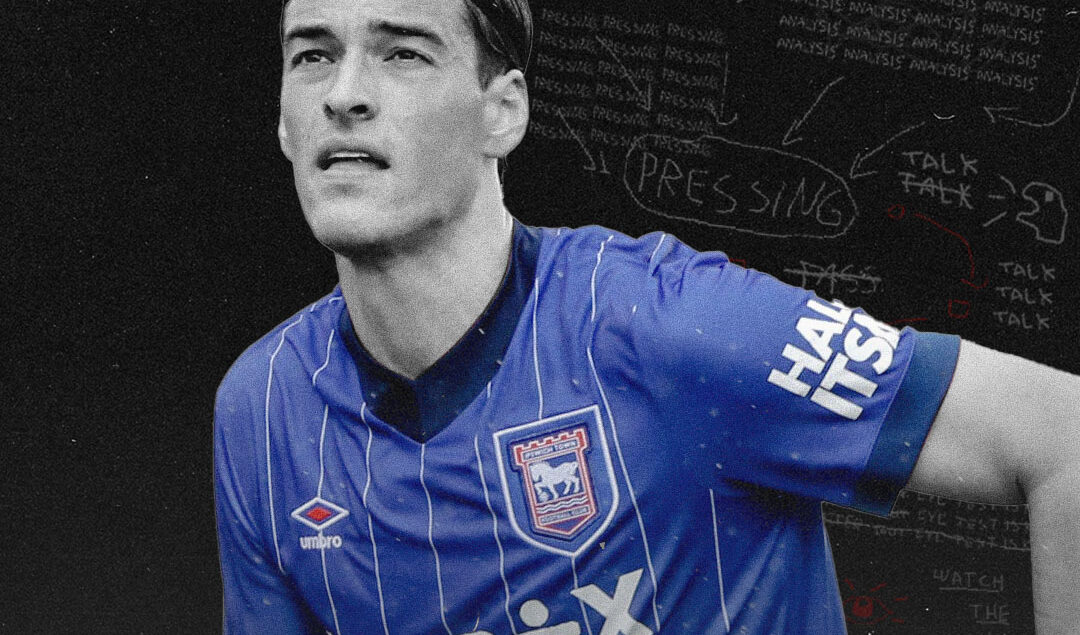Can Ipswich Town Stay Up in the Premier League?
Ipswich have certainly got a chequered history.
The once great club, managed by legends like Alf Ramsey & Bobby Robson, were a staple in the 1st division in the 60s, 70s and 80’s, winning the 1st division title and the UEFA Cup. Sadly, it didn’t last. Robson left for England in 1982 and by 1986 Ipswich were relegated to the 2nd division.
Then they got stuck.
Ipswich spent most of the next 33 years (aside from two brief spells in the Premier League) unable to get out of the Championship before being relegated to League One in 2019. By 2022, after 3 years in the 3rd tier, it looked like they’d never return.
Then, a miracle.
Between 2022 and 2024 Ipswich became only the 3rd team this century to achieve successive promotions from League One to the Premier League, despite spending only £7m.
It’s an incredible achievement, here’s how they did it:
Our story begins in 2021. Ipswich have just finished 9th in League One. They’re a stagnant, with huge debts and a crumbling stadium. After years of fan pressure, unpopular owner Marcus Evans sells the team to US firm Game Changer ltd, writing off all the clubs’ debts in the process and transforming its fortunes. Game Changer promptly hires former Bristol City CEO Mark Ashton to lead their football operations, modernises the club’s management structure, renovates the stadium and invests in facilities.
They’re still losing money (pre-tax losses of -£12.6m for 2021/22) but it doesn’t matter. Game Changer are happy to invest, Ipswich now has modern infrastructure and is primed for success. On the field, the club invested heavily to sign 20 new players that summer, including the likes of Wes Burns & Conor Chaplin. Sadly, manager Paul Cook couldn’t get the squad to gel and by December, he was sacked.
To replace Cook, the club took a gamble by signing Manchester United assistant manager Kieran McKenna, highly rated but unproven. Despite a flying start, losing only 3 games in his first season, too many draws meant McKenna’s team finished 11th, their worst finish since 1959. That summer was spent getting McKenna’s tactics right, where the high octane 4-2-3-1 was born, based on 3 key principles: Play fast, play forward, press hard.
That last one’s important; it dictates everything Ipswich do without the ball. Out of possession, the striker and closest winger aggressively press the ball carrier while the other winger blocks central passing lanes, forcing play out wide. Once that happens, the closest holding midfielder and fullback also press aggressively while the furthest holding midfielder blocks passing lanes and the other defenders form a back 3, its designed to be solid and force mistakes.
If the opposition get the ball into the defensive 3rd the two CDM’s join the back four while the advanced midfielders drop deep and move centrally, creating a compact 6-3-1 that allows players to adopt the same pressing structure, ensuring they’ve got the numbers required to attack the ball and remain solid. So yeah, press the damn ball.
Then, when they get the ball, the magic happens. To begin attacks, the CDM’s drop deep to receive the ball and bait the opposition press. From there the aim is simple, get the ball into the middle 3rd, either via:
- A pass to the fullback
- Carrying it themselves
- Line breaking passes into the middle.
Once it’s there, the fun begins. When the ball gets into the middle third, left back Leif Davis advances, the left winger moves into the left half space, the no. 10 moves into the right half space and the right winger hugs the touchline. All of a sudden Ipswich have a dynamic 3-2-4-1 that locks the opposition in their half and creates overloads.
Players’ instructions are simple, pass and move. Players use short quick passes to move the ball while supporting players are continuously moving, ensuring the ball carrier has plenty of progressive passing or scoring options. It’s a fast, fluid attack that creates a high volume of chances and it has brought huge success, since his appointment McKenna’s picked up more points than any manager in England. But he’s not their only weapon.
Sure, McKenna deserves a lot of credit, but Ipswich’s successive promotions have come despite spending less than £7m on players. How? Incredible scouting. Many of Ipswich’s recent signings have one thing in common, mediocrity. Players like Leif Davis & Conor Chaplin (to name a few) weren’t very good when they got to Suffolk, but that soon changed. Whether it was a change of position (Chaplin) or role (Davis), Ipswich turned them into world beaters.
While 9 of the clubs’ players from League One have played in the Premier League, Davis is the poster boy. A bust at Leeds, Davis looked finish until McKenna decided to use his crossing skills in possession. Since then? Unstoppable. Since 2022 Davis has registered 35 assists from left back, earning two team of the season awards and deserved links with the England squad. Not bad for £1m.
Whatever happens Ipswich have secured their future status as Championship title challengers at a minimum. How? one word: recruitment. Since promotion, Ipswich have spent £120m on a list of players that reads like a future Premier League stars article. The likes of Jacob Greaves, Omari Hutchinson and Liam Delap are all potential England stars.
The logic is simple. The new signings either succeed at Ipswich and bring survival, or they’ll be sold for a huge profit so the club can sign and develop more players, driving future success. And if they lose McKenna? Sure, it’ll hurt the most and results will suffer, but in the long run I don’t think it matters. Why? Adults are running the show now. They’ve built a model that works and can achieve long term success, regardless of who’s in the dugout.
By: Kieran Alder / @The_Own_Goal
Featured Image: @GabFoligno / Timothy Rogers / Getty Images
